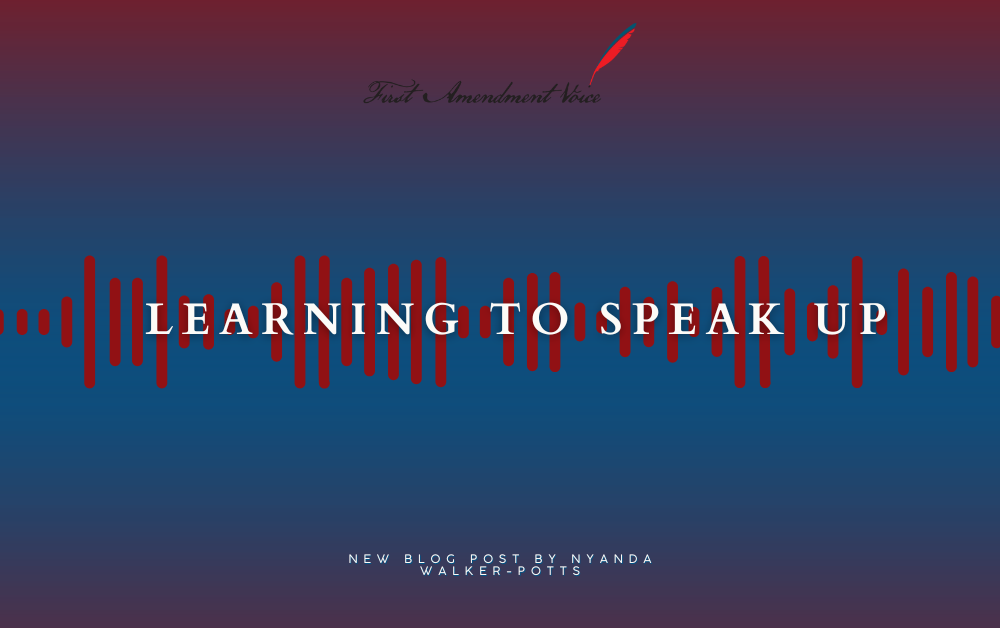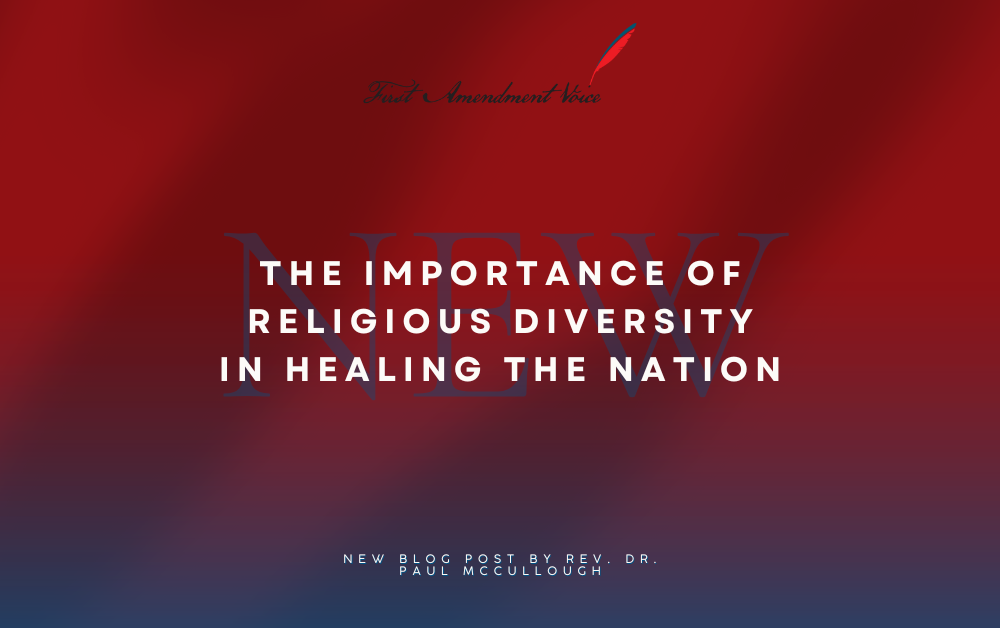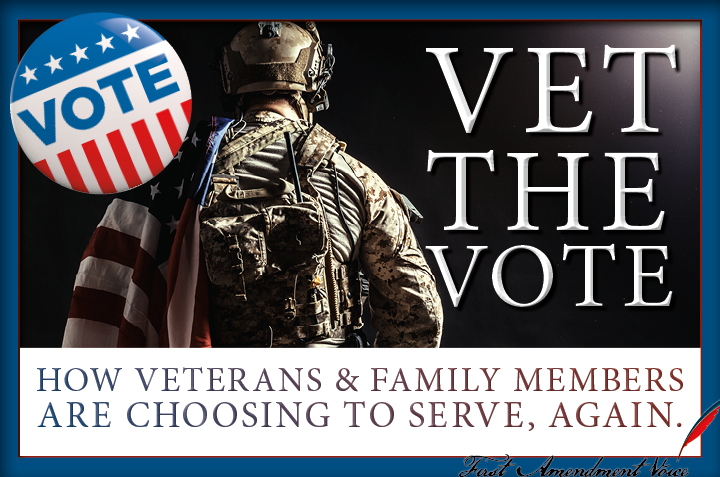
by Hunter Vaughn | Mar 26, 2024 | Advocacy
Exploring the ethical and legal considerations surrounding whistleblowers who expose cybersecurity vulnerabilities and their connection to First Amendment protections.
Written By: Hunter Vaughan (FAV Communications Director)
In an increasingly interconnected digital world, the nexus between cybersecurity and freedom of speech has become ever more profound. Whistleblowers, standing as guardians of transparency and ethical practices, have become pivotal players. But where does the line between public interest and national security get drawn, and how does the First Amendment come into play?
Edward Snowden: Shaping the Cybersecurity Whistleblowing Landscape
Edward Snowden is more than just a name; he embodies the complexities of the modern whistleblower’s role in cybersecurity. In 2013, as a former National Security Agency (NSA) contractor, he revealed a vast trove of classified information detailing the extent of government surveillance programs. Snowden revealed how agencies were tapping into personal communications, tracking internet activities, and even partnering with telecommunication giants to access data without public consent.
These revelations sparked international debates, reshaping the discourse around privacy, data protection, and governmental oversight. Was Snowden a hero, championing individual privacy rights and putting a spotlight on governmental overreach? Or was he a traitor, compromising national security by unveiling classified data? His actions pushed these discussions into the public realm, forcing both citizens and governments to re-evaluate the balance between individual privacy and collective security.
Snowden’s case is particularly illuminating as it underscores the high stakes for whistleblowers in the digital era. Their disclosures can lead to global reforms, but also personal consequences. Snowden himself is now in exile, living a life away from his home country as a direct result of his actions.
First Amendment Protections: A Whistleblower’s Shield?
The First Amendment, a cornerstone of American democracy, enshrines the right to freedom of speech. This protection isn’t just about speaking openly but also about ensuring that the public is informed, especially when it comes to potential government overreach or misdeeds.
In the context of whistleblowers, the First Amendment plays two roles. On one hand, it serves as a potential shield, offering a basis for protection when they expose truths in the interest of the public. On the other hand, it’s a double-edged sword. The Amendment doesn’t grant “carte blanche” rights to disclose classified information, especially if it can jeopardize national security.
The ongoing challenge, therefore, lies in discerning when the public’s right to know supersedes potential risks to national interests. This balance is delicate and has led to many calling for clearer legislative guidelines to protect whistleblowers, ensuring that they are not unduly punished for acting in what they believe is the public’s interest.
The Crucial Nature of Whistleblower Protections
Research from the Whistleblowing International Network emphasizes the necessity of whistleblower protections in today’s digital environment. Given the vast digital repositories of personal, financial, and security data, ensuring transparency and accountability in both governmental and private cybersecurity realms is essential.
Whistleblowers, when protected and encouraged, can reveal vulnerabilities, unethical practices, and drive reforms. Their actions can lead to enhanced security protocols and a more informed public. However, for this to occur, they require protections that shield them from retaliation and ensure their disclosures are treated with the severity they deserve.
Conclusion
As our world becomes increasingly digital, the interplay between whistleblowers, cybersecurity, and free speech grows more intricate. Edward Snowden’s case, and others like it, force us to grapple with nuanced ethical and legal questions. As advocates of the First Amendment, it’s our duty to understand these complexities and champion the right balance between public interest and national security.

by FirstAmendmentVoice | Sep 30, 2023 | Advocacy
Written By: Hunter Vaughan and Giannina Griggs (FAV’s Communications Coordinator and Membership Director)
September is Suicide Prevention Month, a time when we turn our attention to an issue that affects countless lives but often remains shrouded in silence. At First Amendment Voice, we are passionate about promoting First Amendment values, which include free expression, open dialogue, and the power of voices and our mission is to encourage civil discourse and active civic engagement. This month, we want to highlight how these values play a crucial role in the fight against suicide and the promotion of mental health.
Counterman v. Colorado: An Important Precedent
You may be curious as to how Suicide Prevention Month relates to the First Amendment. According to the ACLU, in the Supreme Court Case Counterman v. Colorado, the Supreme Court ruled that “in true threats cases the First Amendment requires the government to prove that the defendant acted with a culpable mental state, and not merely that his words were objectively threatening.”
One of the most important aspects of this case appears to be the precedent set, specifically in reference to how we define “recklessness” when addressing free speech of the First Amendment. This precedent directly impacts those with mental health issues. The defining of “recklessness” allows for intention and mental capacity to be proven or disproven in court, meaning individuals with mental incapacities will not be wrongfully prosecuted or convicted, should it be proven that there is no ill intention or that the individual does not have the capacity to determine ill intention on their own. This also results in the inability of individuals to use mental illness as an excuse when ill-intent and recklessness are present.
This precedent also has heavy social and cultural implications. By setting guidelines of “recklessness” and not allowing mental health to be used as an excuse, this allows for the seriousness of genuine mental health issues to be re-established. In essence, it avoids individuals to use self-diagnosis or untruthful mental diagnoses. This creates a genuine consensus within the court that true mental health issues may be proven and then addressed as seriously as other issues which cause incapacity in individuals.
Breaking the Silence
The First Amendment guarantees our right to speak our minds, even on the most challenging and uncomfortable topics. Mental health and suicide are subjects that have long been stigmatized and pushed into the shadows. However, when we utilize the power of free expression, we can break the silence surrounding these issues.
Sharing personal stories, discussing mental health challenges openly, and engaging in empathetic conversations about suicide are all vital steps toward reducing stigma and increasing understanding. By doing so, we create an environment where individuals feel safe to seek help and support.
Fostering Empathy and Support
Empathy is a cornerstone of First Amendment values. When we actively listen to the experiences of those who have faced mental health challenges or contemplated suicide, we cultivate empathy and compassion. It’s a reminder that behind every statistic is a human being with a unique story and struggle.
As advocates for the First Amendment, we believe in the power of community. By fostering a sense of togetherness and support, we can help those in need find the strength to overcome their challenges. Together, we can provide hope and a sense of belonging, which are often lifelines for individuals grappling with thoughts of suicide.
Promoting Access to Resources
The First Amendment also gives us the freedom to share information and resources openly. During Suicide Prevention Month, it’s essential to provide individuals with access to the tools and support they need. This can include information about mental health services, crisis hotlines, and online communities where they can connect with others who understand their struggles.
As a society, we can use our collective voices to ensure that everyone knows where to turn when they or someone they care about is in crisis. Information is a powerful tool, and it can save lives.
Joining the Conversation
At First Amendment Voice, we encourage you to join the conversation during Suicide Prevention Month and beyond. Here are some ways you can get involved:
- Share Your Story: If you have a personal experience with mental health challenges or suicide, consider sharing your story. Your words can provide hope and comfort to others.
- Engage on Social Media: Connect with your community and share resources and stories that promote understanding and empathy.
- Support Local Organizations: Reach out to local mental health organizations and nonprofits in your community to see how you can contribute to their efforts.
By embracing First Amendment values and using our voices, we can help create a society where mental health challenges are met with compassion, understanding, and resources. Together, we can break the silence surrounding suicide and, most importantly, save lives.
Thank you for being a part of the First Amendment Voice community and for joining us in supporting Suicide Prevention Month. Let’s use our voices to make a difference.
ACLU Article With Access To Court Documents: https://www.aclu.org/cases/counterman-v-colorado

by FirstAmendmentVoice | May 18, 2023 | Advocacy
by Nyanda Walker-Potts, FAV Communications Intern
It is common to see the news full of protesters and activists who stand up and speak out, and it seems like it is easy for them. They are full of passion and the desire to make a change. It is inspiring and impressive and it makes the person watching feel like they can do anything.
Realistically, however, it is not that simple. Sure, when you see the story about people being honest and making a change, there’s a part of you that wants to experience the same thing. There is a bigger part, nevertheless, at least for some of us, that wants the change, but not the attention.
How do we make that work then? How do we advocate for better things if we do not like the attention? If we are naturally quiet and introverted people? If we say nothing, then nothing gets done, but the idea of speaking up is very uncomfortable. What do we do?
Assertiveness is important and necessary. Not just in civic engagement, but in life. A person’s biggest advocate is going to be themself. If you can’t take up for yourself, who is going to do it?
These are things that I have discovered about assertiveness. It is absolutely a process, and it is not easy, but it is important to be able to state your needs/wants in all settings. You can be an introvert and still be assertive. Being honest about things does not mean you are not being true to yourself. It might seem weird or uncomfortable, but there are steps you can take to make yourself more assertive. With that being said, in the nature of honesty and advocacy, here are a few tips that helped me to increase my assertiveness.
1. Determine how you communicate. To start, it is important to identify your communication style. There are plenty of ways to say something, and it will help make you more comfortable if you are aware of how you come off to others. There are four main styles of communication: passive, aggressive, passive-aggressive, and assertive. Figure out the way that you communicate so that you can plan the uncomfortable conversation accordingly. Stay aware of your tone so that things do not come off differently than how you mean them.
2. Be honest. There is a sense of relief that comes with being honest about the way someone or something makes you feel. The truth of the matter is that if you are not honest about how you feel, people probably are not aware.
3. Be patient. This is an all-encompassing tip. Be patient with yourself. Be patient with the person you are talking to. Be patient with the business you are trying to get a hold of. Change can take time.
4. Be compassionate. It is easy to become angry or annoyed when you are talking to someone who feels differently than you, or who does not understand where you are coming from. It is much better for everyone, however, if you come from a place of compassion. Try to put yourself in their shoes, and keep in mind that we are all human.
5. Be heard. I know that I mentioned patience a few steps back, and I still stand with the fact that it is important. However, patience does not mean passivity. Do not let things go if you want them to change. Do not let the length of time things take steer you away from speaking up. Change is hard, but it’s worth it. Make sure they hear you.
All in all, advocacy is not easy. It takes courage and time and patience, and sometimes it is just easier to say nothing; especially when you don’t really want to say something in the first place. Conversations can be difficult, but difficult conversations lead to impactful change. Don’t let your uncomfortableness steer you to complacency. Be an advocate. You can absolutely do it.

by FirstAmendmentVoice | Apr 14, 2023 | Advocacy
by Rev. Dr. Paul McCullough
I am a Christian man. I’ve believed in God for as long as I can possibly remember and I can’t imagine my life without God in the middle of it. This is never something I wanted to hide, but my religious persuasion is now abundantly clear to anyone who receives written correspondence from me, as the title of “Reverend” has preceded my name for the last three years. My hope is that when people see this credential, they would know that I am person that believes in hope, forgiveness, and love. Unfortunately, the sad truth is that so many people have been the victim of hurtful words or actions from those who profess to be Christians, that my designation can sometimes push people away without me ever saying a word.
Since 595 BC, wars have been fought and blood has been shed in the name of religion. Including during the time of Jesus, people have been obsessed with following religious laws, rather than a relationship with the God of the universe. I do not believe this is what God intended for us. Do I believe the exact same things as people who practice their faith differently? No, of course not, but this does not mean that I cannot show them love. In fact, I have multiple friends who are Jewish, Muslim, Hindu, or Buddhist. Although there have occasionally been times when we disagree about certain aspects of our faith, people of all faiths should be able to agree on the goodness and value of the most basic human emotion – love. On occasion, when people speak bad about me because of my faith, I remember the words of Jesus, “If you only love those who love you, what reward will you get?”
Our nation has become painfully divided in many areas, but one of the clearest lines of demarcation is that of faith. In this digital age of TikTok videos and viral social media posts, it has become far too easy to make hateful comments and go about your business. However, I suggest there is a better way. When a person has a different opinion than you, look for common ground. Find something to love about that person and actively work to unite with that individual, rather than place a wedge between you.
Our country has some deeply rooted problems that have existed for generations. I believe we can only solve these problems when we stop focusing on what divides us, whether that is our religious or political beliefs, and instead utilize our varied backgrounds, personalities, and abilities as a source of strength. Throughout my time in the military, I’ve had the great privilege of serving with people of all faiths. All that mattered is that the person to your left and right would “have your back” in combat. Let’s do the same in civil society to bring about healing.

by Kelly Kehoe | Jul 28, 2022 | Advocacy, Upcoming Events
Vet The Vote: How Veterans and Families are Choosing to Serve their Country, Again
First Amendment Voice recently partnered with Vet The Vote and nearly twenty other organizations—including the Iraq and Afghanistan Veterans of America, NFL, National Military Family Association, and Student Veterans of America, to name a few. We were inspired to join this coalition for two key reasons: 1) to preserve fair and peaceful elections in the U.S. in the 2022 midterms and beyond, and 2) to continue showcasing the enormous impact that veterans and their families have on American democratic institutions and processes.
What is Vet The Vote?
Vet The Vote is a project of the We the Veterans Foundation and in 2022, the goal is to recruit over 100,000 veterans and their family members to serve as poll workers for the upcoming midterm elections. This is absolutely critical, since more than 130,000 poll workers have stopped serving over the past three midterm elections and 68% of election officials across the U.S. found it challenging to secure enough poll workers in the 2018 midterm elections. Furthermore, the Pew Research Center reported that 58% of poll workers during the 2018 elections were 61+ years of age.
What all of this means is that our democracy is more at risk than we might think. Poll workers are essential to maintaining fair and free elections. Some of the many responsibilities they fulfill include:
- Checking in and assisting voters with any questions or concerns they may have
- Ensuring there are adequate supplies for all voters, as well as accommodations for disabled voters (e.g., page magnifiers, wheelchair ramps)
- Processing absentee ballots
- Maintaining voter privacy
- Requesting the removal of disruptive poll observers
In polling places with too few workers, there could be excessively long lines (which could turn people away from voting entirely) or even lead to the shutdown of the polling place in the event of a severe short-staffing issue.
Short-staffed polling places are problematic for urban and rural voters alike. In populous urban areas, the wait time may be longer than the time remaining to vote before the poll closes, especially later in the day when many people go to vote after work. In less-populated rural areas, some people may need to drive for miles just to access a polling place, which can disproportionately impact low-income voters who may have limited means of transportation.
With these troubling consequences in mind, what better way to ensure the right to vote is protected than having veterans serve as poll workers? The vast majority of veterans have already served in nonpartisan ways and understand the importance of service in their communities. Maintaining the security and integrity of our elections now and in the future has never been more important, and American veterans are well-equipped for this task. You can support Vet The Vote by signing up to be a poll worker or donating to We the Veterans Foundation.
2022 National Symposium Panel on Veterans
Additionally, we have a programming scheduled for our 2022 National Symposium in September on the role of veterans in civic engagement. Will you be in the Philadelphia area on September 24th? Please consider joining us at the National Constitution Center. Register here
In addition to our partnership with Vet The Vote, First Amendment Voice also had an outstanding panel on the role of veterans in depolarization during our 2021 National Symposium. You can listen to the full panel on our YouTube page here.
FAV is launching a new series on our YouTube channel exploring the difference between civics and politics and our role as a civic organization. Watch our latest video in the series in which our executive director discusses our partnership with Vet The Vote as an example of civic engagement in action.











